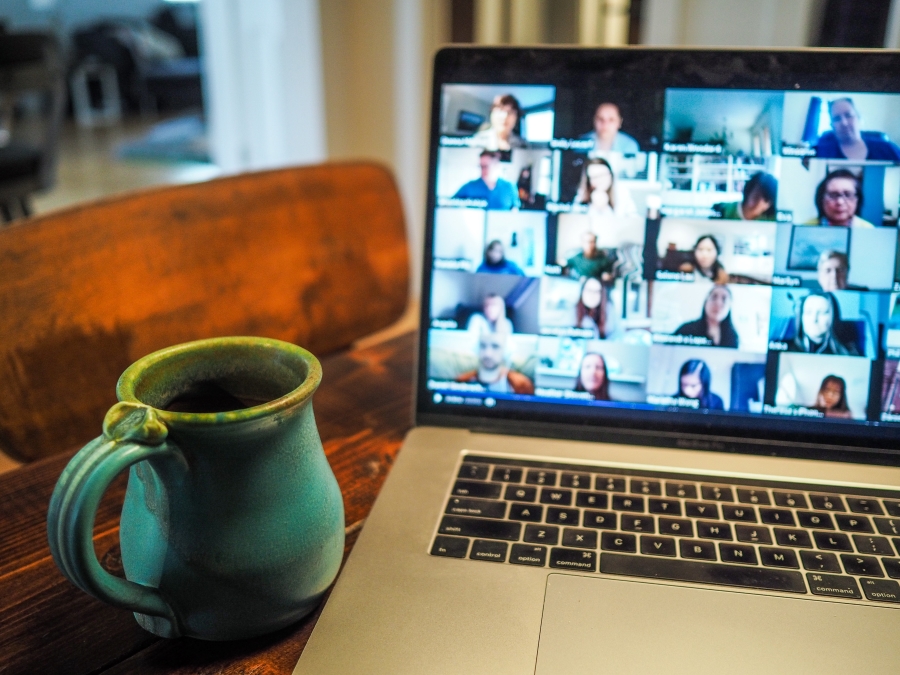As businesses look to rebuild in 2021, one of the biggest truths that’s emerged from the last 12 months is the importance of flexibility. A few weeks ago Salesforce released a blog titled Creating a best workplace from anywhere, for everyone. They’re just one of a number of companies looking to change things, with similar announcements recently coming from other leading businesses like Spotify, Microsoft and Twitter.
At the start of Covid-19 we heard a lot about the death of 9-5 hours and working in an office. Depending on your experiences and industry, this may have been a long time coming or be a bit of a shock. Since those early months of 2020 there’s been a slight change in sentiment with the idea of going back into the office (at least part of the time) attractive to some. But the one thing that is abundantly clear is that flexibility and the freedom to choose is one of the key qualities the best candidates are looking for from prospective employers.
What is Salesforce doing?
Basically, Salesforce are implementing a 3-tier system. It will work like this:
- People can work remotely all the time – this means Salesforce can now hire people from anywhere in the world. Interestingly I’ve seen this happening a lot in the last year or two, helping to overcome skills shortages in areas like San Francisco and Sydney.
- People can come into the office 2-3 days a week and may commute outside of rush hour. They’ll be able to pick their days as they blend their work commitments with their personal commitments.
- People can go into the office 5 days a week because they physically need to be there to do their job, or for personal reasons they’d prefer to be there.
Salesforce said they came up with the idea by conducting employee welfare surveys when Covid-19 started. So back in March and April of 2020 they were asking how people were feeling and what they wanted.
The result of these surveys is this 3-tier approach and messaging that internally has a very clear purpose. They’re essentially saying, ‘We’ve listened to you and we’ve done something about it. Now we’re going to try this new model to see if it works. If it works, we’ll keep it forever.’
Why is flexibility important for employees?
The reason why I like Salesforce’s approach is that it’s not just about remote working or flexible hours, it’s about choice. Different people have different needs and an employee’s needs will change over time. So employers who offer this flexibility are not only attracting the best talent, they’re also retaining their best performing employees.
I spoke to a young lady recently who works at a software company. She’s been doing a lot of working from home because she lives 90 minutes from the office and has a young family. Now she’s saying she wants to leave her employer because they’re requiring everyone to be in the office and she’s burning 15 hours a week commuting. This means that company could lose a really good staff member because she has to be in the office all the time. The employer’s argument, which is fair, is that collaboration is essential and if you’re not all in the same physical space you don’t have that real-time interaction.
Another lady I spoke to yesterday turned down a job opportunity because her current employer allows her to work 4 days a week and the company looking to hire her wouldn’t do that.
We’re already having the question about flexibility asked of us by candidates. This year we’ve done some work with a leading e-commerce business. All the people we’ve placed there have some kind of flexible working arrangement while still going into the office some of the time.
Are there any risks for employers offering flexibility?
We don’t really know what the long-term impact of these new working styles are. There’s plenty for employers to think through when trying to find a solution that works for them, as well as employees.
Some businesses are worried about productivity and collaboration. As we’ve seen in the last year, flexible working takes a bit of adapting in terms of tech and working styles. So how do businesses make sure they’re getting the most out of people? There are a range of different strategies being implemented right now to do that, but perhaps the simple truth behind it all is that happier employees are going to be more effective employees.
Other risks are perhaps a bit less obvious. Commuting to work and being in an office forces people to interact with people they don’t see in their personal lives. There’s a decent argument that this does a lot in terms of helping people build deeper understanding of the world and empathy for those around them. Without the experiences of commuting or interacting in a workplace environment, will an employee’s personal development be impacted?
The other thing that’s standing out to me right now is the potential for proximity bias. This is true for both hiring and promoting candidates. If there are two candidates for promotion or to hire, could a manager or employer be swayed by the fact they’ve physically spent more time with someone or that they’ll be able to spend more time in the office together in the future?
What does the future look like?
While the risks I’ve mentioned need to be taken on board, there’s no doubt that flexibility is the future and Salesforce are leading with their offering. Salesforce aren’t being absolutist, they’re giving their employees the freedom and respect to figure out what’s best for them.
For years companies have been saying ‘Our most valuable asset is our people’. With an increased focused on mental health the employers that make good on that statement will be the ones that end up with the best people – now and in the future.
–
If you would like to have a confidential discussion about how offering flexible working conditions can help you attract the best candidates, contact Phil Davis, Managing Director, Q Consulting Group on 0404 803 609 or at phil.davis@qconsultinggroup.com.au
`

